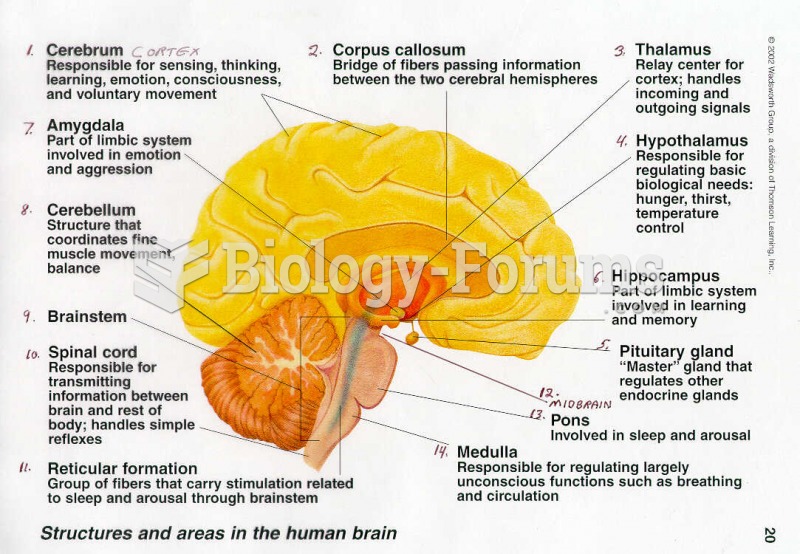|
|
|
Although not all of the following muscle groups are commonly used, intramuscular injections may be given into the abdominals, biceps, calves, deltoids, gluteals, laterals, pectorals, quadriceps, trapezoids, and triceps.
In women, pharmacodynamic differences include increased sensitivity to (and increased effectiveness of) beta-blockers, opioids, selective serotonin reuptake inhibitors, and typical antipsychotics.
People with high total cholesterol have about two times the risk for heart disease as people with ideal levels.
More than 2,500 barbiturates have been synthesized. At the height of their popularity, about 50 were marketed for human use.
Eating carrots will improve your eyesight. Carrots are high in vitamin A (retinol), which is essential for good vision. It can also be found in milk, cheese, egg yolks, and liver.
 Empathy draws a more positive response from the patient because it is based on the willingness of th
Empathy draws a more positive response from the patient because it is based on the willingness of th
 The physician will begin visual inspection of the patient immediately upon entering the examination ...
The physician will begin visual inspection of the patient immediately upon entering the examination ...





